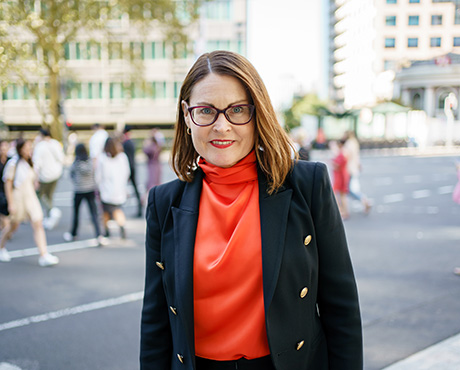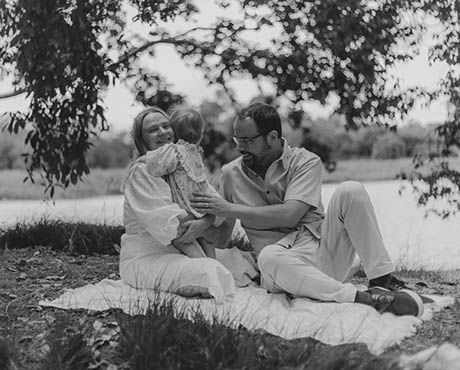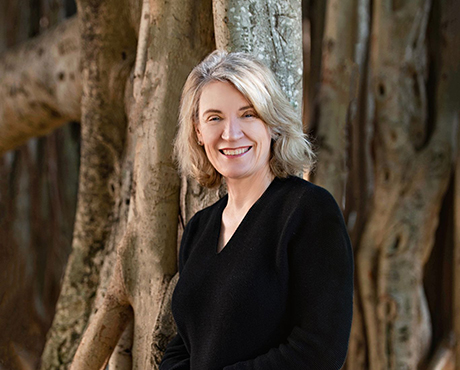
A message from Professor Andrew O’Neil
News 28 MayAn update from the Executive Dean of Law and Business Professor Andrew O'Neil.
29 September 2021
Share
A message from the Vice-Chancellor Professor Zlatko Skrbis:
ACU’s strong commitment and approach to sustainability acknowledges the indivisible link between social, economic, and environmental sustainability and our university’s future. This commitment extends beyond our campuses. As a community, we prioritise these important areas not only because they are deeply embedded in our Catholic mission to honour the dignity of each being and to care for our common home, but simply because it is the right thing to do.
Our second annual Sustainability Week, from 3-9 October, will focus on ‘Modern slavery impacts’ and ACU’s commitment to preventing and ultimately eliminating the impact of modern slavery. It also acknowledges the clear, but not immediately obvious, link between modern slavery and what we commonly call ‘sustainability’: when ecosystems break down, those who depend on them become vulnerable to modern slavery.
You may think that this issue plays out in poorer regions of the world and is far-removed from Australian shores, but according to the 2018 Global Slavery Index an estimated 15,000 people are enslaved in Australia right now, with the Asia Pacific region accounting for the highest numbers globally – of whom 70 per cent are women and girls.
At ACU we draw inspiration from Saint Josephine Bakhita, patron saint of our Blacktown Campus and patron saint of modern slavery victims and human trafficking, as we work to address the injustices inflicted upon the most vulnerable members of our communities.
As a recently appointed member of the Domus 8.7 committee, I am personally committed to promoting awareness of modern slavery practices and acting to support those affected. Our university has also committed to submitting an annual Modern Slavery Statement that will report on the risks of modern slavery in our operations and supply chains, and the actions we have taken to address those risks.
Part of this commitment was introducing the modern slavery training modules developed by the Australian Catholic Anti-Slavery Network and the Catholic Archdiocese of Sydney. I encourage anyone interested to register for these modules and to raise their awareness on how the impact of modern slavery plays out in everyday life and business. We have also taken the further step in our procurement processes to hold our partners, suppliers, vendors, and tenderers to the same standard by making these modules available to anyone who wishes to engage with ACU commercially. These small but important measures contribute to the collective action we take every day as a university community in supporting Pope Francis’s call to action in Laudato Si’ (LS 146): “Purchasing is always a moral – and not simply economic – act”.
I invite you all to engage with Sustainability Week next week by attending online and in-person events that focus on the impacts of modern slavery, climate change, ethical investment, sustainable travel and more. While face-to-face events are again not possible on all campuses, there are still many ways you can participate online. Events and resources include a panel on sustainable investing with expert guests, social media competitions, and a list of worthwhile films and books for you to enjoy.
Please look out for details of scheduled events and ways you can get involved, and join the Sustainability@ACU Workplace group to engage with our initiatives.

An update from the Executive Dean of Law and Business Professor Andrew O'Neil.

Expect a few email notifications as we prepare to welcome you to Viva Engage next week.

ACU is developing a new Education and Student Success Plan to ensure our university continues to provide a high-quality, student-centred learning experience. Find out how you can contribute to the pla...

A reminder to all academic staff that the mandatory Notice of Intent, for those intending to apply for promotion in the 2025 round, must be submitted by 11.59pm this Friday (30 May).

Include an additional survey item in the Student Evaluation of Learning and Teaching (SELT) survey for units that are offered in Professional Term 4 (202547).

Register for these 15-minute sessions to learn more about the variety of online researcher profile platforms and what is involved in setting up, linking and updating your profile.

Lecturers-in-charge can make a direct determination of Poor Academic Practice (PAP) for students who engage in minor forms of academic misconduct. Learn why they can be valuable to staff and students.

You're invited to join your Campus Community of Learning Advancement - a professional learning community focused on collaborative workplace learning.

A message from the Executive Dean Faculty of Education and Arts Professor Mary Ryan.

The Semester 1 2025 Student Evaluation of Learning and Teaching (SELT) surveys will close on 29 June. Students say they are more likely to complete the surveys if they are reminded in class and unders...

ACU librarians have recently begun using Rayyan for screening and collaboration. It is a free alternative to Covidence that can assist with systematic review workflows. Read more about Rayyan and othe...

The Academic Board Digest from meeting 02/2025 held on 15 April 2025 is now available.

Tomorrow, 15 May, is International Day of Families. To celebrate, let’s hear from ACU staff member Martina Donaghy about how flexible working has helped her manage care for her young daughter after re...

Student Advocacy Service is running an information session designed to provide staff with a clearer understanding of the scope of support available to students.

Explore the future of assessment with Interactive Orals. We’ll be joined by expert, Danielle Logan-Fleming to share valuable insights into this transformative model and its impact across disciplines.

A message from the Executive Dean of Health Sciences Professor Suzanne Chambers.

Academic promotions provides an opportunity to recognise and reward your achievements at your current level of appointment that warrant promotion to the next academic level. Register to attend an info...

Advance HE is offering free webinars on Student Success and Advance HE Fellowships in May and June as part of their Australasian Member Benefit Series.

Recent cyber-attacks on Australian organisations have highlighted the need to protect yourself online. Learn more about infostealers and what you can do to stay safe.

As artificial intelligence tools become part of everyday academic work, questions around copyright are more important than ever. This workshop on 22 May will focus on the copyright implications of usi...
Visit Service Central to access Corporate Services.